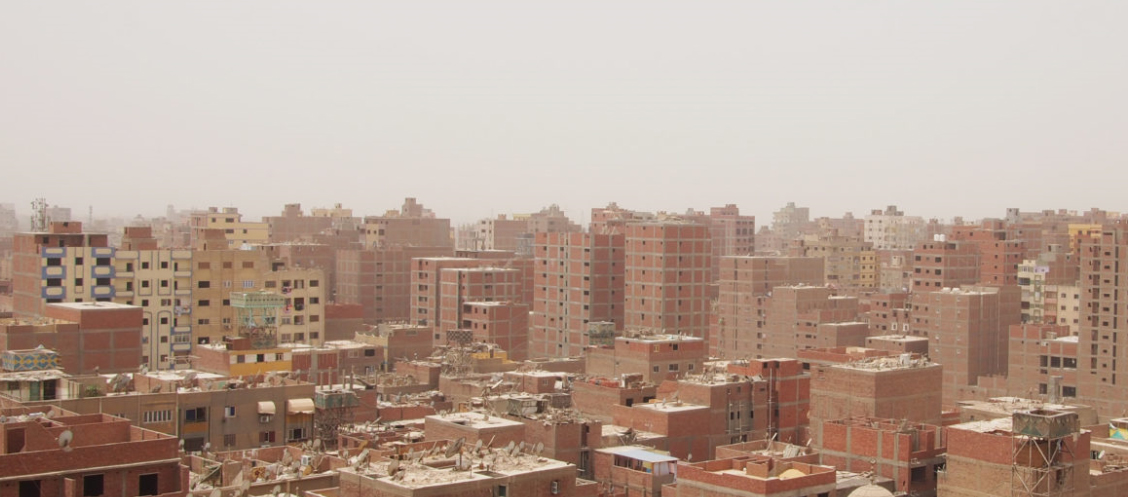
Housing Cairo
Focussing on the metropolitan region of Cairo, this research project aims to identify the forces at work – both formal and informal, and combinations thereof – in the production of territory. Over the past decades, Greater Cairo has morphed into an indistinct zone structured by moments of concentration and corridors of movement whose flows bypass the center. One encounters here a process of territorial hybridization that has begun to engulf large parts of the Nile Valley – a form capital-driven spatial accumulation extending over large portions of the territory, one made of a conglomerate of informal settlements, desert cities, villages, industrial facilities, agricultural fields, infrastructure, and so on.
Working in collaboration with Egyptian partners, a first phase of the project addressed Cairo’s so-called informal settlements or ashwa’iyat, literally meaning disordered, haphazard, or random, and home to 10 million people reportedly living in those marginalized areas of the city by the turn of the millennium. Construction in these ‘informal’ settlements is of a very different order than in other parts of the world due to its organizational order, structural quality, material homogeneity, and normed building processes – an advanced form of informality that has recently given rise to what could be termed ‘informal speculation’, with more and more buildings being erected under the radar of official control. A second phase of the research directed its attention on so-called desert cities, understood within official planning policies as the ‘formal solution’ to address the needs of the growing population – removed from the city center and built on the outskirts of the capital on on virgin ground, so to speak, were a new and improved Egypt could be built from scratch – uncrowded, organized, and modern. The most recent of these endeavors to date is the project of the New Capital, a desert city reserved for the affluent class on the extended periphery of Cairo’s metropolitan periphery.
Contact:
Charlotte Malterre-Barthes
malterre@arch.ethz.ch
